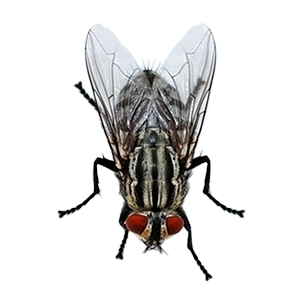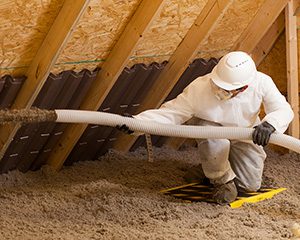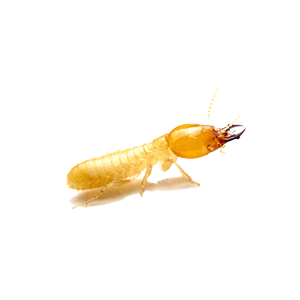Freezing Temperatures Don’t Faze Termites

Many people think termites die off or completely go away during the winter.
Bad news…they don’t!
While termites are cold-blooded creatures and can’t survive exposed in the cold, there is one place that makes a fantastic winter home for their colony.
Your house!
Imagine the damage a colony of termites can do, desperately trying to get into the warmth of your home all winter—especially if you don’t even know they can be there in winter!
AAA Exterminating will go through some of the signs you can look for to see if you have termites, as well as how they survive in winter and why this season is the best to take care of infestations.
How Do Termites Survive the Winter?
Termites need warmth to survive, and there are many ways for them to find it. They stay active year-round and can find methods to stay warm regardless of where they make their home.
The ones you’re most likely to find in your home or on your property are the eastern subterranean termite, but you can learn about other species you might encounter in our online pest library.
Termites without an obvious place to hide and stay warm can simply dig down farther, where heat and moisture conditions are more ideal for them. This also means they work their way farther into your foundation and the supporting structure of your home.
Even the soil near your home can be warm enough for a colony to survive!
The second way they can find warmth, and another bad one for you, is burrowing themselves into the interior regions of your home. Door frames and wooden walls make for easy targets and allow the pests to have a nice warm place to make a nest. Once snugly in your home, they’ll return to summer levels of activity, becoming even more destructive!
Either of the colony’s decisions will result in serious damage to your home and will leave you looking for pest control companies in Indianapolis, Indiana. To learn more about AAA Exterminating’s termite resources, click here.
What Are Signs That I Have Termites?
While termites can often be hard to spot, especially if you aren’t actively searching for them, there are some definite signs you can look and even listen for.
Things to look out for include:
- visible termites
- shedded wings – a sign of termites who’s jobs are to start new nests
- droppings
- wood shavings
- expansion tubes for their colonies near your home’s foundation and outer walls
Subterranean termites will most likely be found toward the foundation of the home, while drywood termites will often go higher to feed and create a nest, which can lead them into the home to cause more noticeable damage.
Other, less visible ways to detect termites are centered more around sound.
- If you suspect termites could be in a door frame or wooden walls, knock to look for hollowed out portions.
- Termites can be quite noisy eaters, so pressing an ear up to a wall and listening for clicking and scratching noises is also a dead giveaway.
The best way to find out if you have termites is to simply talk to the experts at pest control companies in Indianapolis, Indiana like AAA Exterminating to provide professional help and advice.
Winter Is the Ideal Time to Toss out Termites
Don’t wait until winter passes to look for a termite problem, let alone treat an existing one!
As we’ve clearly seen, many think termites will simply die off or go away when the weather gets cold enough, but that just isn’t true.
Luckily, winter is one of the best times to take care of a termite problem! Termites tend to stay close to the nest and the population condenses during colder temperatures, allowing bait and other pest control methods to be more effectively placed. This also allows nests to be more easily located, giving the extermination process the best chance to succeed!
Where Can I Get Help with Termites?
If you’re looking for pest control companies in Indianapolis, Indiana, look no further than AAA Exterminating. With over 65 years of experience and leading termite control systems, AAA is your first choice for termite removal and any other pest control needs you may have.
You can contact them online here or call them at (317) 773-3797.








